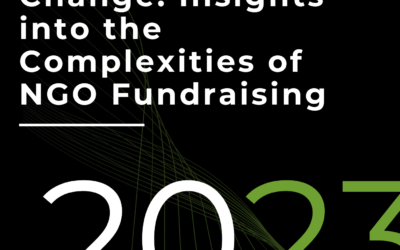Research & Publications
Research has been one of the focal elements in 180DC’s understanding of environmental and status quo variables, generating purposeful and relevant insights.
Peruse to enlighten yourselves on different trends and Data points identified and presented to you by 180DC SRCC.
180 DATA CAPSULE
Transport: Data Capsule
In a country with a population of over 135 crores, millions of people travel daily to various places. The working population travels to reach offices, students travel to reach schools and colleges, labourers travel to reach factories, and so on. India’s transport sector is large and diverse, it caters to the transport needs of 1.1 billion people. In 2012-2013, the sector contributed about 5.2 per cent to the nation’s GDP. From a macroeconomic perspective people, while travelling, people can either use their private vehicles like cars, motorcycles etc. or use the public modes of transportation like buses, metro, trains etc. Several factors like cost, convenience, safety, distance etc. are considered before choosing the apt mode. Transportation networks are considered to be the arteries of any economy and to improve the sector, the travelling preferences and habits of the people in this reference need to be analysed. 180 Degrees Consulting, Shri Ram College of Commerce, through a primary survey of more than 600 responses, attempted to get insights into the everyday travelling habits of the people and the impact of Covid-19 on their habits. The report “Unravelling the Travelling Habits” summarises the findings and provides a correlation between different factors of transportation to give interesting insights into this unique field.
Marketing and Behaviour : Data Capsule
Marketing techniques have evolved greatly in the modern era. Marketing is no longer limited to just the idea of advertising and branding products. It is about creating awareness about products in the mind of the consumer such that a particular product can resonate better.
Marketing activities nowadays are much more targeted and look to influence the potential customers which are more likely to buy the product. This customer targeting can be done using a number of different ways. One of the most common techniques used for this is the use of cognitive biases.
These biases exist in humans inherently and they can influence a consumer’s rational and his or her reasoning ability. For instance, an old adage in marketing strategy is that the more a product is visible, the higher is its ability to generate sales.
PRATYAKSH:
ANNUAL CONSULTING JOURNAL
Pratyaksh 2023 : The Annual Consulting Journal
Introducing Pratyaksh 2023, the latest edition of our Annual Consulting Journal by 180 Degrees Consulting, SRCC. A testament to our commitment to innovation and professionalism, Pratyaksh offers thought-provoking articles, insightful analyses, and interviews with India’s foremost experts. In this year’s edition, we delve into the theme of “Real-world Problem Solving: Unravel, Scrutinize, and Propound,” showcasing our dedication to addressing pressing challenges and providing innovative solutions. Join us as we continue to pave the way for consulting excellence at Delhi University’s premier consulting journal.
Pratyaksh : Annual Consulting Journal
Complexity Simplified
180 Degrees Consulting, SRCC proudly presents to you, Pratyaksh 2022, Delhi University’s first ever Annual Consulting Journal. A window into the world of consulting,
an amalgamation of thought and action, Pratyaksh stands on the fundamental pillars of innovation and professionalism.
We hope the first issue of Pratyaksh fosters a legacy of new ideas and the simplified complexities of consulting.
Research Reports
Interstate Migration – A Policy Consulting Report
This policy report provides a comprehensive analysis of how migration profoundly influences India’s social and economic dynamics. It explores the historical foundations of migration, the complexities migrants encounter while adapting to new locales, and contemporary patterns of movement across state borders. The report critically evaluates the existing policy landscape and offers actionable recommendations aimed at fostering an inclusive environment that promotes the prosperity and well-being of both migrants and the states they move to.
A Dive Into The Multiplex Industry
Unlocking the Reel Magic: Dive into the heart of India’s Multiplex Industry!
The Indian Multiplex Industry, once a vibrant hub of cinematic experiences, found itself on an unprecedented and volatile trajectory in response to the global COVID-19 pandemic and the subsequent surge in OTT (Over-The-Top) platforms. This period spurred rapid adaptation to changing consumer behaviour and innovative strategies to address challenges in the evolving entertainment sphere.
Check the report to explore the reel trends, analyse the factors fuelling its growth, decode the cost and revenue model, and join the guesstimate game as we navigate the celluloid landscape of success!
Catalyzing Change: Insights into the Complexities of NGO Fundraising Report 2023
The “Catalyzing Change: Insights into the Complexities of NGO Fundraising Report 2023 edition” is a report that provides valuable insights into the challenges and opportunities faced by NGOs in their pursuit of financial sustainability. The report examines the fundraising landscape across four key sectors: education, gender equity, healthcare, and environment. It identifies common fundraising issues faced by NGOs. Additionally, the report provides recommendations for NGOs to navigate these challenges and enhance their fundraising effectiveness.
Sector Reports
Energy Sector Report
The energy sector’s evolution is marked by significant milestones, transitioning from fossil fuels to the ascendance of renewables. This report explores the intricate supply chains of both energy sources, employing frameworks like Porter’s Five Forces and geopolitical insights to illuminate competitive dynamics. Market share analysis reveals the dominance of subsets like oil, solar, and natural gas, while competitor analysis assesses strategies in marketing and pricing. Understanding historical and contemporary challenges, from regulatory shifts to technological advancements, provides crucial context. This comprehensive approach aids in navigating complexities and strategizing for future developments in the dynamic energy landscape.
Banking Sector Report
The banking sector faces fierce competition, intricate supply chains, and rapid technological advancements. Porter’s Five Forces and the Diamond Model analyze competitive pressures and national advantages respectively. Challenges include regulatory compliance, cybersecurity risks, and shifting customer preferences. Recommendations center on digital transformation, improving customer experience, and forging strategic alliances. Understanding the competitive landscape, supply chain intricacies, and historical evolution is essential for effectively navigating the complexities of the banking industry.
FMCG Sector Report
The FMCG sector thrives amidst intense competition, intricate supply chains, and rapid product cycles. Porter’s Five Forces assess market dynamics, while the Diamond Model identifies competitive advantages. Challenges encompass supply chain disruptions, evolving consumer preferences, and sustainability requirements. Recommendations emphasize innovation, enhancing supply chain resilience, and integrating sustainability practices. Understanding the competitive landscape, supply chain intricacies, and historical trends is pivotal for success in this dynamic industry. This holistic approach enables FMCG companies to adapt swiftly, capitalize on emerging opportunities, and maintain resilience amidst market fluctuations and evolving consumer expectations.
policy Reports
Policy Report : National Telecom Policy 2012
India’s telecommunications market has witnessed unprecedented growth in recent years, positioning the country as one of the largest and fastest-growing telecommunications markets in the world. The government of India has played a critical role in shaping and implementing policies to promote innovation and development in this sector. To offer insights into the National Telecom Policy 2012 and its impact on the industry, 180 Degrees Consulting, SRCC has launched a comprehensive report.
The report provides a detailed account of how telecommunications became an integral part of the Indian lifestyle, from the pre-independence era to the 21st century. It also covers the evolution of the government’s role with the industry throughout the country’s history, and how this policy has played a significant role in shaping the future of telecommunications in India. The National Telecom Policy 2012 report aims to offer an in-depth understanding of the policy and its impact on the telecommunications sector in India.
The report also delves into the major initiatives and strategies adopted by the government to promote innovation and growth in the telecommunications industry. It highlights the various measures implemented under the National Telecom Policy 2012, such as the auction of 3G and 4G spectrum, the implementation of Mobile Number Portability, and the establishment of a regulatory framework to safeguard consumer interests.
The comprehensive report by 180 Degrees Consulting, SRCC offers valuable insights into the National Telecom Policy 2012 and its impact on the telecommunications industry in India.
National Action Plan on Climate Change : Policy Report
Climate change is a global challenge with far-reaching consequences, including rising sea levels, extreme weather events, and loss of biodiversity. Recognizing the urgent need for action, the Government of India launched the National Action Plan on Climate Change (NAPCC) in 2008. The NAPCC is a comprehensive framework that outlines India’s strategy for mitigating and adapting to the impacts of climate change. The plan includes eight national missions focused on energy efficiency, renewable energy, sustainable agriculture, and other critical sectors.
While the NAPCC represents an important step forward in addressing climate change in India, significant challenges remain.
Our policy report aims to provide a detailed analysis of the NAPCC, highlighting its strengths and weaknesses and identifying key areas for improvement. We hope that our analysis will contribute towards the development of effective policies and strategies for mitigating the impacts of climate change and building a sustainable future for all.
Drug Demand Reduction: Policy Report
The National Action Plan on Drug Demand Reduction (NAPDDR) is a policy framework designed to combat drug addiction in India. Launched in 2018, the plan focuses on prevention, treatment, rehabilitation, and social reintegration of drug addicts. It aims to build a strong institutional framework, enhance capacity building and awareness programs, promote research and innovation, and strengthen international cooperation.
While the NAPDDR has made progress in its implementation, challenges remain, including inadequate funding, limited resources, and a lack of coordination among stakeholders. Sustained political commitment, increased funding, and better coordination among stakeholders are necessary to achieve the objectives of the NAPDDR and reduce drug demand in India.
We believe that our report will serve as a valuable resource for policymakers, stakeholders, and concerned citizens seeking to understand and address the complex issue of drug addiction in India. Learn more comprehensively about the policy , analysing its objectives, performance, reasons for the failure and recommendations to improve the same.
Research Capsules
180 DC State Analysis
Amidst the economic doldrums, various nations have come up with their own strategies to tackle the pandemic. However, India with its diversity, has a different pandemic situation in the state level itself, with cases and problems varying across each state.
In this series, we peruse through the scenarios among various states, analysing their problems at the grassroots level, and ultimately coming up with solutions, justified with a touch of consulting.
Economics of Space Mining
It has been said that the world’s first trillionares will be the ones who make their fortune in mining – asteroid mining.
This extremely lucrative option is predicted to be the next goldrush, with huge corporations like SpaceX and Amazon betting on it’s future. But is it as lucrative as it seems, or is too good to be true?
Read on to know more!
Thalinomics
The Economic Survey of 2019-20 tabled by Finance Minister Nirmala Sitharaman dedicated a whole chapter to ‘Thalinomics’, in an attempt to explain that ‘thalis’ or wholesome meals have become more affordable to the common man over a 13-year period across India.
Read on to know more!
Data Reports
Imbalance of Payments
This Data Report explores a detailed analysis of what India owes the world, with enthralling insights relative to the country’s GDP, and a global comparative analysis to understand where India places internationally. It identifies trends and studies the currency-wise classification, giving projections on India’s external liabilities.
180 Business Index
180 Degrees Consulting, SRCC is elated to announce the launch of its new research initiative, 180 Business Index: a Data report.
In this publication, we have developed our very own Score and Ranking system, overcoming the shortcomings of the Ease of Doing Business Index. It entails detailed analysis of independent parameters like Regulatory Enforcement, and Labour Income and Output for 100+ countries, compiled and presented using Tableau, a widely used interactive data visualisation software.
FDI Trends: Indian & Global
Foreign Direct Investment has always been a critical driver of economic growth. Today, India has become one of the most attractive destinations for Foreign Direct Investment. Its significance especially for developing economies and emerging markets all the more intrigue us to explore this front.
The Research and Analysis Department of 180 Degrees Consulting presents a data report showcasing Indian and global trends of FDI through interactive dashboards. Analysing the trends over the years we present sector wise and state wise attractiveness of investment in India, the major contributors of FDI inflows and lastly comparing the performance of various countries and economies to India.
Medici Effect
Netflix
‘Extraordinary belongs to those who create it’
From renting out DVDs through posts to bringing original content to our phones, Netflix has travelled a long road.
The ‘Streaming revolution’ brought by Netflix not only brought the cost down & redefined the content consumption but also disrupted the entire Entertainment industry.
Amazon
‘Are you going to wait for the world to change? Or are you going to change the world?’
From selling books online to becoming the major player of the book industry of the world, Amazon has grown huge. The ‘Online retailing revolution’ brought by Amazon not only saved the costs and helped the authors but also disrupted the entire Book Industry.
Ford
The assembly line method developed by Ford continues to be the standard of production in the industry today, with its implications reaching out to other industries as well.
From starting in a small garage in 1896, to producing one of the best selling cars in 1929, Ford brought about a revolution in the automobile industry of it’s time.






















